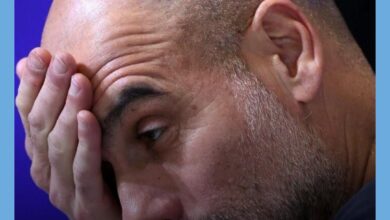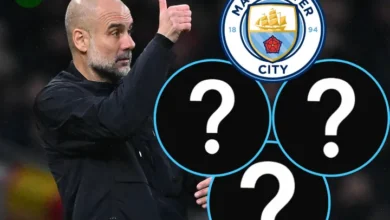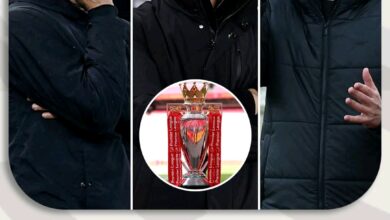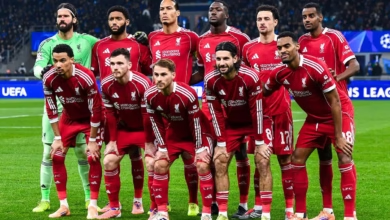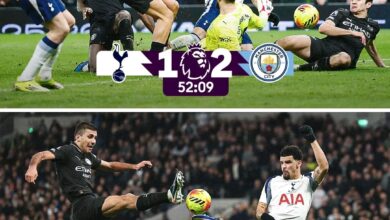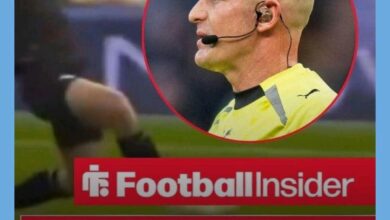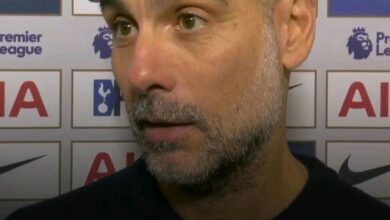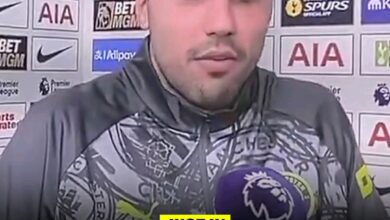Arsenal confirm the signing if new player to the team

The summer transfer window of 2025 has proven to be a defining period for Arsenal Football Club, with Mikel Arteta and sporting director Andrea Berta orchestrating what could be the most significant recruitment drive in the club’s recent history. After consecutive near-misses in the Premier League title race, the Gunners are determined to bridge the gap between being perennial challengers and genuine champions.
Perhaps no transfer story has captured the imagination of Arsenal supporters quite like the pursuit of Viktor Gyokeres. The Swedish striker, who has been nothing short of sensational at Sporting CP, has emerged as the North London club’s primary target to solve their long-standing striker conundrum. However, Fabrizio Romano, the transfer guru whose word has become gospel in modern football circles, has issued a stark reality check regarding the feasibility of this blockbuster move.
Arsenal are determined to finalise a deal for Gyokeres, although Sporting have stipulated that his transfer fee must be paid in full within two years – a condition that could prove to be the stumbling block in what otherwise appears to be a match made in heaven. The Swedish international’s incredible goalscoring record of 96 goals for Sporting has made him one of Europe’s most coveted forwards, but his €65 million release clause, coupled with Sporting’s payment structure demands, presents a significant financial hurdle.
Romano’s assessment of the situation has been characteristically measured yet informative. The 26-year-old, who has scored 44 goals in 45 games this season, seems certain to move this summer, with Arsenal reportedly being his preferred destination among Premier League suitors. This preference has given the Gunners a crucial advantage in negotiations, as player desire often proves to be the deciding factor in high-profile transfers.
The complexity of the Gyokeres situation extends beyond mere financial considerations. Recent reports suggest that Viktor Gyökeres fears he is being priced out of a move to the Premier League, indicating growing frustration from the player’s camp regarding Sporting’s rigid stance on transfer terms. This development has created an interesting dynamic where Arsenal must balance their need for the striker against the financial realities of modern football economics.
While the Gyokeres pursuit dominates headlines, Arsenal’s transfer activity extends far beyond securing a marquee striker signing. The club’s approach this summer reflects a sophisticated understanding of squad building, addressing multiple positions while maintaining financial prudence in an era of Financial Fair Play scrutiny.
The early stages of the transfer window have seen Arsenal take a measured approach, with Arsenal ended the first 2025 summer window without a single addition to their name by mid-June. However, this apparent inactivity masks a more strategic approach, with the club focusing on securing the futures of key players before embarking on new acquisitions.
One of the most significant developments has been Gabriel Magalhaes’ contract extension, a move that demonstrates Arsenal’s commitment to building around their established core. The Brazilian defender’s new long-term deal provides stability at the heart of the defense and sends a clear message about the club’s ambitions. This retention strategy forms a crucial part of Arsenal’s overall transfer philosophy, recognizing that keeping key players is often as important as signing new ones.
Among the various transfer rumors circulating around Arsenal, one particular story has captured attention with its suggestion that a deal is ‘basically done.’ While specific details remain closely guarded, sources close to the club suggest that this could relate to a defensive or midfield reinforcement rather than the headline-grabbing striker pursuit
The phrase ‘basically done’ in modern transfer parlance typically indicates that personal terms have been agreed upon and only final administrative details remain to be completed. This level of progress suggests that Arsenal have been working on multiple fronts simultaneously, ensuring that their transfer business doesn’t hinge entirely on resolving the Gyokeres situation
The secrecy surrounding this particular deal reflects Arsenal’s evolved approach to transfer communications. Under Arteta and Berta’s leadership, the club has become increasingly sophisticated in managing information flow, often completing deals with inimal public speculation. This strategy helps maintain negotiating positions while avoiding the premium that often accompanies highly publicized pursuits
The role of journalists like Fabrizio Romano in modern football transfers cannot be understated. His reporting has become so influential that his phrases like “Here we go!” and “Deal basically done” have entered football’s lexicon. Romano’s updates on the Gyokeres situation have provided Arsenal supporters with real-time insights into the complexities of high-level transfer negotiations.
Romano’s reporting style, which combines authoritative sources with accessible communication, has revolutionized how transfer news is consumed. His assessment of the Gyokeres situation as potentially problematic due to payment structure requirements has tempered some of the optimism surrounding the deal, providing a dose of realism to what might otherwise be pure speculation.
The transfer expert’s influence extends beyond mere reporting; his analysis often shapes public perception and can even influence the negotiations themselves. When Romano suggests that certain aspects of a deal are problematic, it often signals to all parties involved that compromises may be necessary to reach a successful conclusion.
The pursuit of Viktor Gyokeres represents Arsenal’s latest attempt to solve a puzzle that has persisted for several seasons. Since the departure of Pierre-Emerick Aubameyang and the struggles to consistently integrate newer signings into the striker role, Arsenal have experimented with various solutions, from deploying midfielders in false nine positions to relying on wide forwards to provide central threat.
Gyokeres represents an ideal solution to this conundrum. His combination of physicality, pace, and proven goalscoring ability in a competitive European league makes him an attractive proposition. The striker’s 96 goals for Sporting demonstrate not just quantity but consistency, suggesting he could adapt to the demands of Premier League football.
The Swedish international’s preference for Arsenal over other Premier League suitors provides additional encouragement. In an era where player power often determines transfer outcomes, having the target actively wanting to join can overcome significant obstacles. This preference likely stems from Arsenal’s playing style under Arteta, which emphasizes possession-based football that could suit Gyokeres’ technical abilities.
Arsenal’s approach to the Gyokeres transfer and their broader summer strategy must be viewed through the lens of Financial Fair Play regulations. The club’s recent return to Champions League football has improved their financial position, but significant outlays must still be carefully managed to ensure compliance with UEFA’s sustainability rules.
The payment structure dispute with Sporting CP highlights these challenges. While Arsenal may have the financial capacity to meet Gyokeres’ release clause, structuring the payment over an extended period helps maintain cash flow and allows for additional signings. Sporting’s insistence on payment within two years compresses this timeline and could impact Arsenal’s ability to strengthen other areas of the squad.
This financial balancing act requires sophisticated planning from Arsenal’s hierarchy. The club must weigh the immediate impact of securing Gyokeres against the long-term implications for squad development. The decision-making process involves not just sporting considerations but complex financial modeling to ensure sustainable growth.
Arsenal’s pursuit of Viktor Gyokeres occurs within a competitive landscape where Manchester United, Chelsea, and other Premier League clubs are also strengthening their squads. Manchester United and Arsenal will learn their fate on Gyokeres’ future, indicating that the competition extends beyond financial considerations to include timing and negotiation skills.
This competition adds urgency to Arsenal’s pursuit while potentially driving up the eventual transfer fee. The presence of multiple Premier League suitors gives Sporting CP additional leverage in negotiations, as they can afford to maintain their rigid stance knowing that alternative buyers exist.
The competitive environment also influences player decision-making. While Gyokeres reportedly prefers Arsenal, the emergence of serious interest from other top clubs could complicate matters. Players often reassess their preferences as negotiations progress, particularly if alternative options offer superior financial packages or clearer pathways to success.
Arsenal’s transfer activity this summer must be understood within the broader context of a transitional period in football. The post-COVID financial landscape has created new dynamics in the transfer market, with clubs more cautious about large expenditures while still needing to compete at the highest level.
The club’s methodical approach reflects this new reality. Rather than rushing into expensive signings, Arsenal appear to be building a comprehensive strategy that addresses multiple needs while maintaining financial flexibility. This approach requires patience from supporters but potentially delivers better long-term results.
The emphasis on contract renewals for existing players, exemplified by Gabriel’s new deal, demonstrates understanding that squad stability often provides better value than constant turnover. This philosophy aligns with Arteta’s preference for working with players over extended periods to fully implement his tactical vision.
The resolution of the Gyokeres situation will likely set the tone for Arsenal’s entire summer transfer window. Success in securing the Swedish striker would provide momentum for additional signings and signal to the football world that Arsenal are serious about challenging for major honors.
Conversely, failure to complete the Gyokeres deal could force Arsenal to reassess their entire strategy. Alternative striker targets would need to be identified and pursued, potentially at greater cost given the compressed timeframe. The club’s ability to adapt to such scenarios will test the effectiveness of their transfer planning.
The broader implications extend beyond immediate squad strengthening. Arsenal’s approach to high-profile transfers influences their reputation among agents, players, and rival clubs. Successful completion of complex deals enhances their standing, while failures can create perception problems that complicate future negotiations
As Arsenal navigate the complexities of the 2025 summer transfer window, the Viktor Gyokeres pursuit represents more than just a potential signing. It symbolizes the club’s ambitions, their approach to modern football economics, and their determination to evolve from persistent challengers to genuine contenders.
Fabrizio Romano’s reality check regarding the transfer’s complications provides important context for Arsenal supporters. While the deal remains possible, success will require creativity, patience, and potentially some flexibility on both sides. The outcome will likely influence not just Arsenal’s immediate prospects but their entire approach to future transfer windows.
The phrase “deal basically done” continues to tantalize supporters, offering hope that Arsenal’s summer business extends beyond just the headline pursuits. As the transfer window progresses, the true extent of Arsenal’s ambitions will become clearer, with each signing or contract renewal contributing to the larger narrative of a club determined to reclaim its position among English football’s elite.
The coming weeks will prove decisive in determining whether Arsenal can transform their carefully laid plans into tangible success. The Viktor Gyokeres saga serves as a microcosm of modern football transfers, where sporting ambition meets financial reality, and where the difference between success and failure often lies in the smallest details of contract negotiation and payment structure.
For Arsenal supporters, the summer of 2025 represents both immense opportunity and significant risk. The club’s ability to navigate these challenges successfully could define their trajectory for years to come, making this transfer window one of the most important in recent memory.






